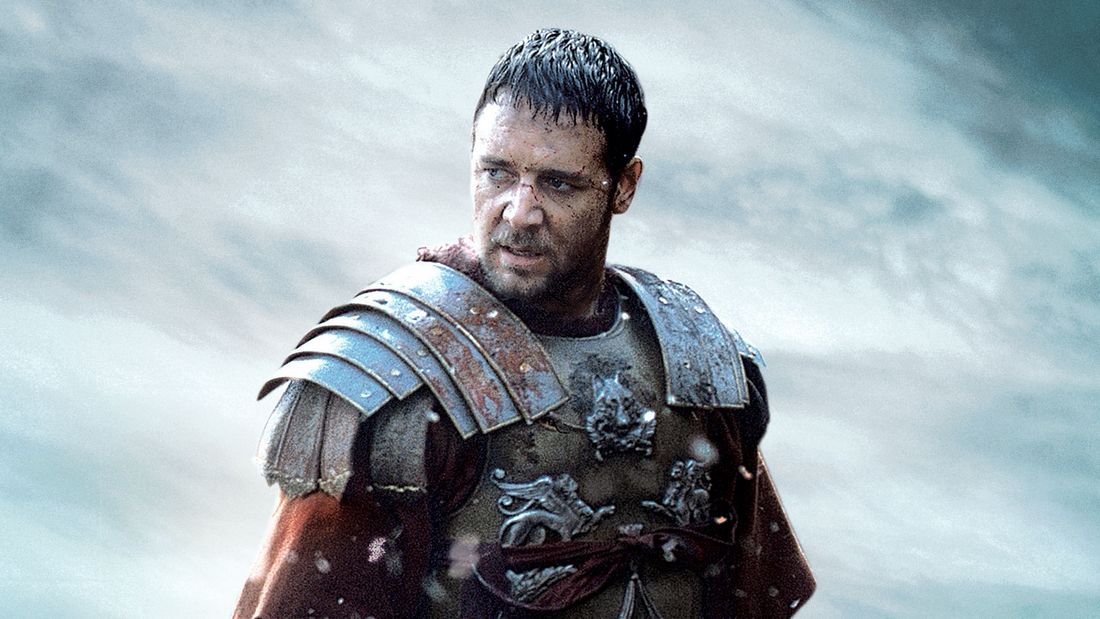Written for Luther College Chips on May 11, 2000
The first of the big summer blockbusters has arrived this week with “Gladiator.” It gives more than is expected of a summer film, but it isn’t quite the “Best Picture” contender that the studio would like us to believe it to be.
“Gladiator” tells the story of the great Roman general, Maximus, who ends up as a slave after some political double-crossing by the emperor, is forced to fight as a gladiator, pressing forward with a desire for revenge.
Rising star Russell Crowe (of both “L. A. Confidential” and “The Insider” fame) plays Maximus perfectly. You don’t question for a second that Crowe could hold his own in the arena. Joaquin Phoenix does an acceptable job as the evil Roman emperor, playing the role in a fairly stereotypical “evil emperor” way.
Director Ridley Scott gives us the comfortable, professional style of an experienced director. In respect to his earlier films, “Gladiator” isn’t as gripping as “Alien” or as thought provoking as “Blade Runner,” but it does project a cool grandiose quality that those films don’t. Scott often experiments with the camera and things sometimes work (sweeping shots of Rome from the clouds) and sometimes don’t (the battles are occasionally shot too close-up and get disorienting.)
Some might try to pass off “Gladiator” as somewhat of a “Braveheart” rip-off, and while Maximus does have similar motivations driving him, the two films really are like apples and oranges. If anything, “Gladiator” reminded me more of “The Messenger,” the recent Joan of Arc film from French director Luc Besson. The way the battles are filmed and the use of dream sequences, even the music, had similarities in style. This isn’t necessarily a bad thing, but both of these films seem to point in the new direction that historical epics are going.
The popular press is more likely to compare Gladiator to the great historical epics of the late 1950s and early 1960s. The obvious comparison is to “Spartacus,” but “Gladiator” doesn’t have the scope that that film does. Maximus has a small band of slaves that he commands in the arena, not a giant army in the countryside. One will also be reminded of the chariot race in “Ben-Hur.” There were a couple of shots that almost gave me the same goose-bump level as I got seeing the gladiators enter the arena in “Ben-Hur,” but “Gladiator” quite gets to the level of intensity of that scene.
The surround sound of “Gladiator” blew me a way. It often felt like I was in the middle of a loudly chanting crowd.
In all, the summer movie season seems to be off to a solid start with “Gladiator.” The last ten minutes alone is worth the five dollars. And if “Gladiator” is any indicator of things to come, the historical epic appears to be back in style.
- Recapping Criterion’s Lone Wolf & Cub Films - December 29, 2024
- Moonlighting (1985) – A Series Review - September 12, 2024
- San Diego Comic-Con 2024 Analysis - July 31, 2024
